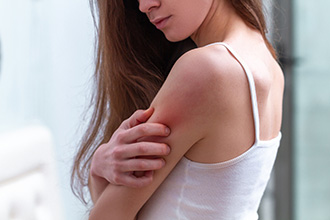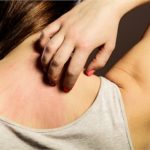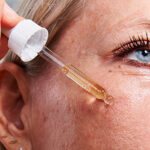
We continue last month’s theme with a brief discussion of additional common itchy skin conditions that are prevalent this time of year.
- Bug bites: TICKS: Some may carry Lyme disease. It’s important to cover with protective clothing when spending time in a woodsy or grassy location where Lyme disease is prevalent and to check your skin for ticks after spending time outside. BEES, WASPS, YELLOW JACKETS: May inflict painful stings. Important to have oral antihistamines available. High potency topical steroid creams (prescription) are also very helpful. EPI Pens (prescription) should be on hand for those with history of severe allergies to stings. MOSQUITOES AND OTHERS: Use repellents such as deet or natural essential oil containing repellents. Treat itchy bites with high potency topical steroid creams to prevent scratching and scars.
- Swimmers itch: Caused by microscopic parasites present in ponds, lakes, and the ocean. Itching occurs after the skin dries from swimming with pimples or hives developing. Prevented by staying out of infested water (signs often posted). Also a brisk rub down with a clean towel after emerging from the water can prevent the parasites from burrowing into the skin.
- Seabather’s eruption: Caused by “sea lice” which are actually just hatched jelly fish or sea anemone larva common in the waters of eastern Florida or the Caribbean. The creatures have stingers and can get caught between bathing suit and skin.
- Margarita burn (phytophotodermatitis): Occurs when sunlight and a plant compound combine to cause prominent streaks on the skin, often the back of the hands and around the mouth/chin. Lime juice is a common cause so wash areas that come in contact when out in the sun. Buttercups, carrots, bergamot oranges, and others with similar compounds can cause the condition.
- Prickly heat or heat rash (miliaria) presents as tiny itchy bumps typically on the trunk usually after significant sweating. The sweat dries and clogs the pores creating the eruption. Prevent by exercising during the cooler part of the day (when outside) and wear light weight, loose fitting clothing. Cool showers can help.


